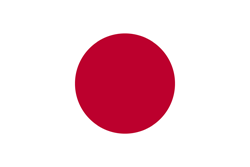Sorry, this entry is only available in JP.
Month: July 2017
Phnom Penh Rising 2017
文章をいれす
(JP) プノンペン 国道4号線 PPSEZ付近の不動産価値上昇
Mizuho opens Phnom Penh branch
Mizuho Bank, one of largest banks in Japan, has started operations in Cambodia with its first branch in Phnom Penh.
Bank general manager Takeshi Fukui said the venture would provide financing to investors and entrepreneurs, both local and foreign, in Cambodia.
“The branch opened on April 19 and is providing a source of finance in Cambodia,” Mr Fukui said.
“Financing for individuals and SMEs is available in the country. But what’s lacking is financing for large entrepreneurs and big companies.
“That’s where we at Mizuho can help fill the gap,” he added.
Mr Fukui said Cambodia is important as an important regional player in Asean in terms of connectivity and transport links.
“We are here because of Cambodia’s geo-strategic position,” he said, adding that the opening of a branch in Cambodia was also to attract Japanese investors.
Direct flights between the two countries by Japan’s ANA airline were bringing more Japanese people, particularly businessmen.
A series of seminars related to business matching would be conducted to attract Japanese investors, Mr Fukui said.
The bank received a licence from the National Bank of Cambodia in February.
Chea Serey, director-general of the NBC, said earlier that Mizuho Bank would play an important role in attracting more Japanese businessmen.
“Mizuho will bring in Japanese investors for years to come,” Ms Serey said.
Premiere calls for more Japanese investment
With the number of Japanese companies settling in the kingdom and creating jobs markedly on the rise, Prime Minister Hun Sen reminded Japanese businesses yesterday of the important contribution they make to the local economy and asked them to keep investments into the country flowing.
Mr Hun Sen spoke during a meeting with a delegation of Japanese businessmen headed by Chang-Woo Han, chairman of Maruhan Group, which recently acquired Sathapana Microfinance Institution.
The prime minister urged Mr Han to continue to expand the operations of his business in the kingdom, pointing out the tremendous benefits to the local economy and to Cambodian society of Japanese investment.
“I asked Mr Abe to encourage Japanese investors to explore possibilities in our aviation sector by creating more direct flights between Cambodian and Japan, as well as to consider investing in local infrastructure,” the premiere said, referring to his August trip to Japan where he met with Japanese Prime Minister Shinzo Abe.
During the encounter with the Cambodian leader, Mr Han announced plans to build a 22-storey building for his bank on Phnom Penh’s Norodom Boulevard next year, which will be completed by 2020 and worth about $60 million.
Maruhan Group has $120 million in assets in the kingdom and 168 branches nationwide. It employs about 4,300 people, taking 15 percent of the pie in the local banking sector, according to the bank’s representatives.
According to the CDC, Japanese companies are now involved in 115 different projects in the country, which in total are worth $1 billion and have created 36,000 jobs.
Cambodia’s economic growth
Cambodia’s economic growth is expected to remain stable this year with inflation rising slightly on increases in the costs of global fuel and food prices, the Asean+3 Macroeconomic Research Office (AMRO) concluded following its annual consultation visit to the Kingdom.
“Cambodia’s economy is expected to grow strongly at 6.9 percent in 2017 with inflation reaching around 4 percent,” AMRO lead specialist Seung Hyun Hong said yesterday in a press release.
“Despite sustained growth in the garment, construction, and tourism sectors, headwinds to growth emanate from rising labour costs and ongoing adjustments in the real estate sector.”
The release followed an annual consultation visit by AMRO in June in which a team from the regional think tank visited the Ministry of Economy and Finance (MEF) and the National Bank of Cambodia (NBC) to study near-term growth prospects, financial stability, policy development and efforts to promote industrial diversification.
In its report, AMRO recommended that the Cambodian government enhance labour quality, improve trade facilitation and reduce logistics and electricity costs to mitigate the adverse effects of continued rises in the cost of labour.
“As [the] manufacturing industry started to show early signs of diversification, [a] broadening economic base is essential for long-term sustained growth,” it said.
The report added that with the Kingdom’s monetary policy constrained by high dollarisation, the NBC should adopt risk-management strategies to enhance financial stability through a “forward-looking” approach that regularly stress tests banks and enhances interconnectedness.
On the infrastructure front, AMRO said the national budget should be rebalanced to allocate for more capital investment.
“In the face of rising labour costs and [a] relatively large infrastructure gap, fiscal policy needs to be more supportive of much needed infrastructure investment and structural reforms to enhance productivity and support growth,” the report said.
AMRO applauded the government’s prudent strategy to enhance tax-revenue collection that has contributed to a decline of the Kingdom’s deficit, giving Cambodia space to continue to borrow in the short term and help build fiscal space to support economic growth.
However, the report advised that over the medium term, the government should pursue additional sources of funding by supporting the domestic capital market and increasing its collaboration with the private sector.







